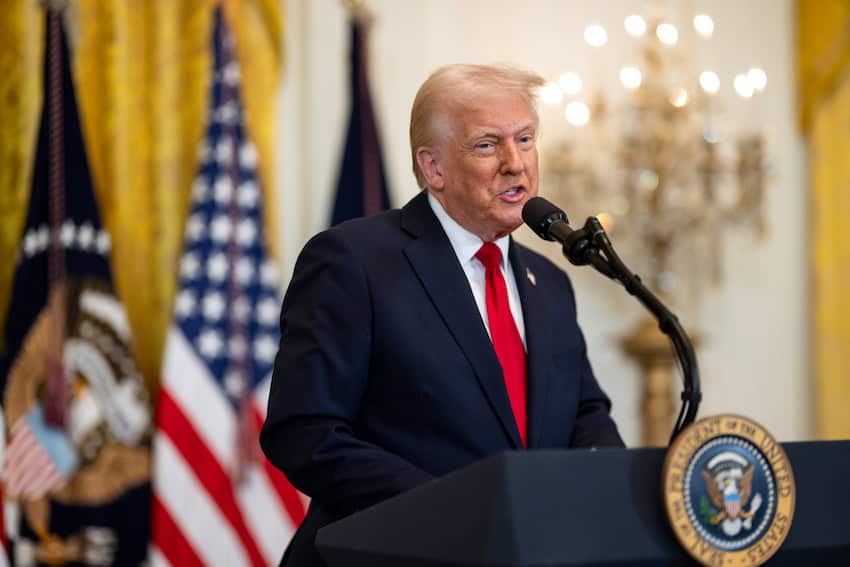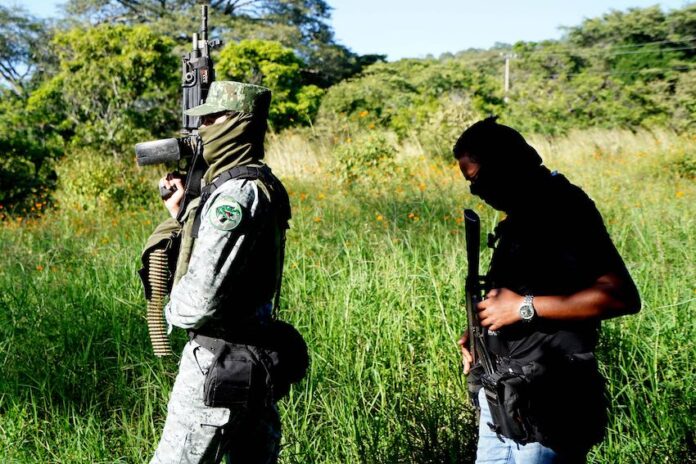The United States Central Intelligence Agency (CIA) has been flying drones over Mexico to spy on drug cartels and hunt for fentanyl labs. U.S. military spy planes have reportedly been surveilling cartels during flights near Mexican territory as U.S. President Donald Trump seeks to stop the flow of fentanyl and other narcotics into the U.S.
Are these missions a precursor to U.S. drone strikes on Mexican cartels? Possibly, according to an exclusive NBC News report published on Tuesday.

Citing information from six current and former U.S. military, law enforcement and intelligence officials with purported knowledge of U.S. security discussions, NBC reported that the Trump administration is considering carrying out drone strikes on cartels in Mexico.
The sources told NBC that White House, Pentagon and intelligence officials have discussed the possibility of launching drone strikes against cartel figures and their logistical networks in Mexico with the cooperation of the Mexican government.
The former and current officials said the discussions are still at an early stage, and the U.S. government hasn’t made a final decision about drone strikes or come to a definitive agreement on how to combat Mexican cartels, six of which were designated as foreign terrorist organizations by the Trump administration in February.
NBC’s sources also said that unilateral covert action against cartels in Mexico — i.e. without the Mexican government’s consent — has not been ruled out and could be an option of last resort.
NBC said it was “unclear whether American officials have floated the possibility of drone strikes to the Mexican government.”
In late July 2024, more than three months before he won the U.S. presidential election for a second time, Trump said that strikes against cartels in Mexico were “absolutely” a possibility.
When asked on the first day of his second term whether he would consider “ordering U.S. special forces into Mexico” to “take out” cartels, the U.S. president said it “could happen.”
More recently, the United States’ ambassador designate to Mexico, Ronald Johnson, said that the U.S. military could unilaterally take action against drug cartels on Mexican soil if the lives of U.S. citizens were at risk.
Unilateral US military action in Mexico: Johnson says maybe, Sheinbaum says absolutely not
President Claudia Sheinbaum promptly rebuffed that declaration. With regard to the CIA drone flights over Mexico, Sheinbaum said in February that her government had requested them in order to obtain information to be able to respond to prevailing “security conditions.”
In late February, The Wall Street Journal reported that in his first call with top Mexican military officials, United States Defense Secretary Pete Hegseth said “that if Mexico didn’t deal with the collusion between the country’s government and drug cartels, the U.S. military was prepared to take unilateral action.”
The White House has asserted that Mexican drug trafficking organizations have “an intolerable alliance with the government of Mexico,” and accused the Mexican government of providing “safe havens for the cartels to engage in the manufacturing and transportation of dangerous narcotics.”
US surveillance flights ‘looking to build a target deck’
One former United States official who NBC said is “familiar” with the Trump administration’s plans said that the recent U.S. drone and spy plane flights over and near Mexico are “looking to build a target deck.”
NBC’s sources said that targets could include cartel members, vehicles and warehouses and other parts of their networks in Mexico. Those networks include clandestine drug labs that are frequently dismantled by Mexican authorities.
NBC reported that “what the Trump administration is contemplating could be unprecedented” in the context of U.S.-Mexico security collaboration, “both in the number of U.S. personnel involved and in the use of American unmanned aircraft to bomb cartel personnel and assets.”
NEW: The Trump administration is considering launching drone strikes on drug cartels in Mexico, according to six current and former U.S. military, law enforcement and intelligence officials. https://t.co/03HXrEmVss
— NBC News (@NBCNews) April 8, 2025
The six former and current officials said that the Trump administration’s refusal to publicly rule out unilateral U.S. military action in Mexico, as well as tariffs on imports from Mexico and other measures, could push the Mexican government to agree to joint operations it wouldn’t previously have agreed to.
Sheinbaum has stressed that Mexico is willing to collaborate with the United States on security issues, but will not accept any violation of its sovereignty, as would occur if the U.S. were to take unilateral action south of the border. As her government has sought to stave off tariff threats from Trump, it has ramped up enforcement against organized crime, seizing large quantities of drugs, arresting thousands of alleged criminals, deploying 10,000 National Guard troops to the northern border and extraditing 29 high-profile cartel figures to the United States.
Unilateral US action in Mexico would be an ‘act of war,’ says former Mexican ambassador
Arturo Sarukhán, Mexico’s ambassador to the United States between 2007 and 2013, told NBC that it appears that unilateral U.S. military action in Mexico is a live possibility for the first time since 1914, the year in which the United States occupied the port city of Veracruz.
“There is no doubt if there were unilateral action inside Mexico, this would put the bilateral relationship into a nosedive,” said Sarukhán, who is now a consultant and academic based in Washington D.C.
“It would be put in a tailspin, as it would represent a violation of international law and an act of war,” he said.
Sarukhán, ambassador during the presidency of Felipe Calderón, said that Mexico’s failure to combat cartels and transnational drug traffickingt over the past decade has tried the patience of the United States.
“At the end of the day, it’s Mexico’s failings and mistakes that have put us in this position today,” he said.
With reports from NBC News
